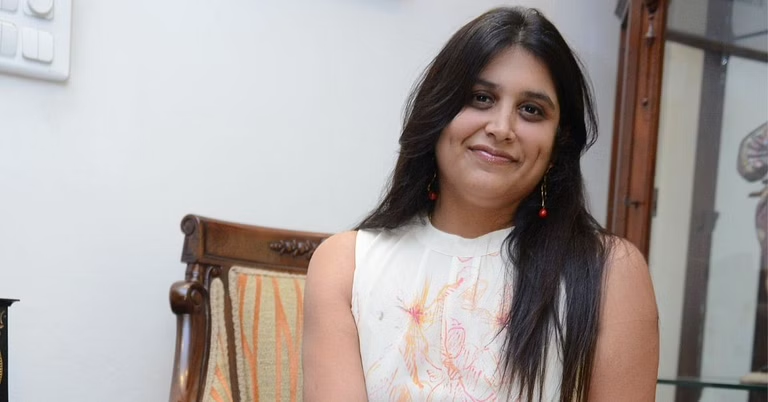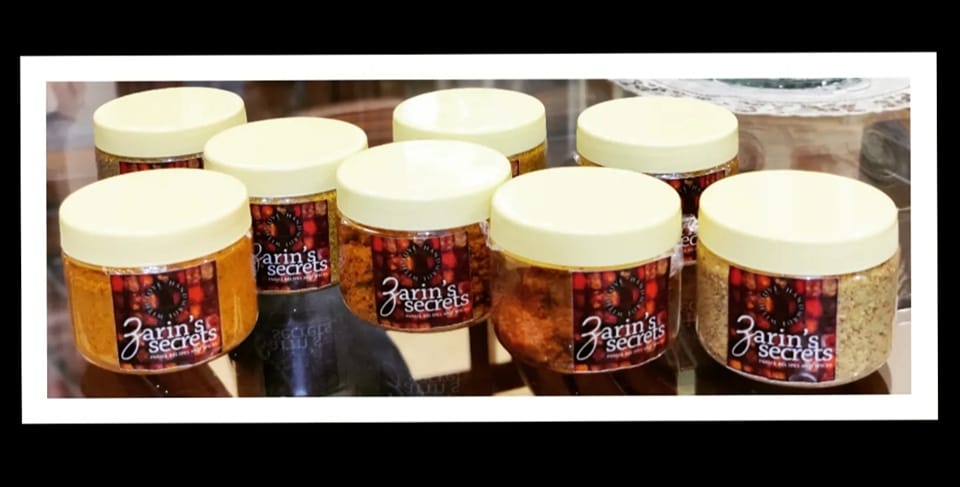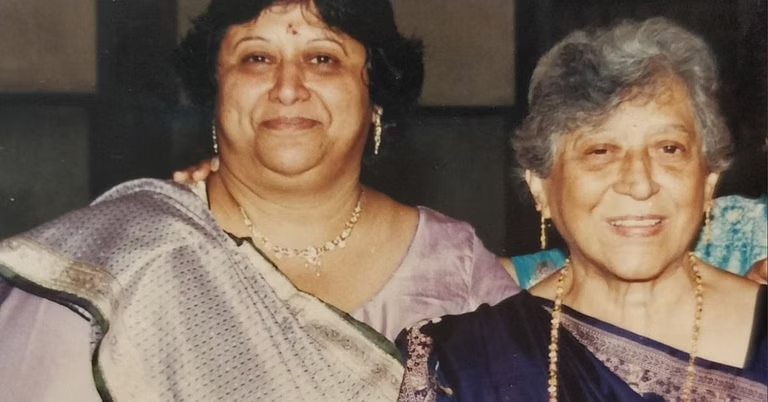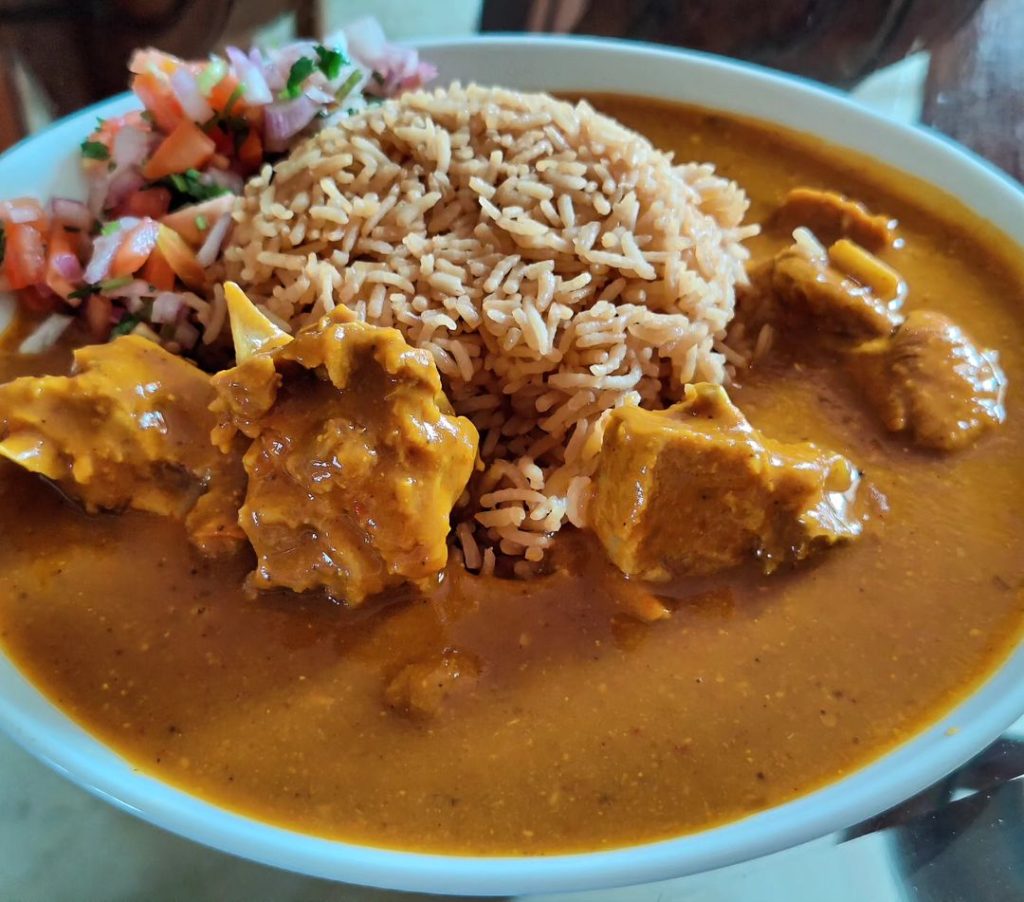For The Love Of Parsi Cuisine: How This Delhi Woman Is Preserving The Parsi Culinary Culture
Though Parsi cuisine has become a part of the identity of Mumbai, most of India is not familiar with it. Here is the story of Shelley Subawalla, a resident of New Delhi who is giving her all to preserve the Parsi community's culture and traditions
In the 2011 census, India’s Parsi population, which had numbered around 114,000 in 1941, stood at a mere 57,264. The community is descended from the Persians who had migrated to India during and after the Arab conquest of Persia in order to preserve their Zoroastrian identity. Today, Parsis are scattered across India, though in small numbers. Though Parsi cuisine has become a part of the identity of Mumbai, most of India is not familiar with it. And those who have tasted it consider it to be niche.

In a bid to preserve the community’s culture and traditions, Shelley Subawalla, a resident of New Delhi, is reviving her grandmother’s secret Parsi spice mixes through her initiative, Zarin’s Secrets. Hoping to preserve family legacies, she has created around fifty original Parsi spice mixes. These are made from her grandmother’s recipes, along with contributions by some community members.
“It was around 20-25 years back that my grandmother, Zarin, passed on recipes for four traditional Parsi spice mixes,” Subawalla tells me over the phone. “She was an excellent cook and loved to feed people. Nothing made her happier than hosting folks at her home.”
Only after her marriage did Subawalla realise the magic of her grandmother’s hands. “I didn’t even know how to boil rice when I married. I used to call up my grandmother daily so that she could guide me through the cooking process. Every time I cook or prepare spice mixes, I think about her and how she taught me the most basic things.”

Its Different From The Rest
She would prepare the four spice mixtures – dhansak masala, curry masala, dhana jeera masala, and sambar masala – for family and friends. They would push her to start making it in larger numbers and start something on a professional level. “However, I never thought about it seriously since my kids were young and needed me. After they grew up, I took a leap of faith and started Zarin’s Secrets,” she says.
Subawalla explains how Parsi spices are different. “Our spices are not just dhaniya or jeera. They are more of a spice mix rather than a solo spice. For example, the dhana jeera is made up of 10-20 different spices in various quantities.”
Subawalla acknowledges that a significant reason behind her initiative was the dwindling number of Parsis in the country. “Youngsters don’t know much about our traditions and culinary history. I wanted the current and future generations to know about the culinary traditions of Parsis. Parsi cuisine is a very exotic cuisine. Furthermore, you get Parsi food, but the spices to prepare the dishes aren’t too easily available. Due to this, I give the recipe along with the spice mix to my customers,” she adds.

Subawalla also runs Frenny by Zarin’s Secrets which she had launched during the pandemic. Under the label (named after her mother), she sells spices from all over India.
Chef’s Perspective
Meanwhile, talking about Parsi cuisine in India, renowned celebrity chef Ranveer Brar says, “It’s one of the examples of cuisines that have amalgamated well and brought the best of two cultures, i.e. the culture that Parsis started from, and the culture where they are now. Using local Indian ingredients and yet holding on to their cooking methods and identity is the fascinating part of Parsi cuisine. It’s a well-thought-of mixture that has developed over centuries.”
Talking about her most significant achievement to date, Subawalla says, “We have been attracting the interest of younger generations. Many newly married Parsi couples are my customers and don’t know how to cook Parsi dishes. They find it easy to prepare them with my spice mixes and the recipe I give along with them. Several non-Parsis are also ordering from me since they are excited to eat the dish that they considered ‘difficult’ to make and exotic.”
You can find Shelley on Instagram @zarinssecrets
If you are also looking for “asal nu Parsi bhonu” (authentic way and recipe of making Parsi food), here is a recipe for Dhan Saak, exclusively curated by Subawalla.
Recipe of Dhan Saak by Shelley Subbawalla

Preparation time: 20-25 minutes
Cooking time: 45-55 minutes
Total time: 1 hour 10 minutes- 1 hour 20 minutes
Servings: 4
Ingredients
- Arhar (toor) daal – 250 g
- Potato, cut in 4 – 1
- Onion, cut in 4 – 1
- Tomato, cut in 4 – 1
- Medium-sized brinjal, cut into pieces – 1
- Red pumpkin, peeled and chopped – 1 slice
- Ginger garlic paste (heaped) – 1 tsp
- Zarin’s Secrets Sambhar Masala powder (heaped) – 2 tbsp
- Zarin’s Secrets Dhan Saak Masala powder (heaped) – 2 tbsp
- Lime juice – from 2–3 limes
- Raw mango, peeled and sliced (optional during mango season) – 1
Method
- In a pressure cooker, add onion, tomato, pumpkin, brinjal, potato, and dal, along with a bit of salt, a pinch of haldi, and a bit of ginger-garlic paste. Close the cooker and let it cook thoroughly.
- If you are cooking meat dhan saak, you can add the meat to the cooker and pressure cook until done. Then, remove the pieces of meat and puree the entire vegetable and dal mixture until you get a smooth dal.
- In a separate vessel, add some oil and ginger-garlic paste (fry it well), Zarin’s Secrets Dhan Saak masala, Zarin’s Secrets Sambhar Masala, and Zarin’s Secrets Kashmiri Marchu, as per preference.
- Add the dal paste and mix well once the masalas have cooked well for a minute.
- Boil for 10-15 minutes till the masala has amalgamated into the dal.
- Add meat and boil further for 10 minutes. If it is mango season, slice one raw mango and add it to the vessel when pouring the dal into the masala. If not, squeeze one or two limes into the completed dhan saak daal and serve it hot with caramelised brown rice.